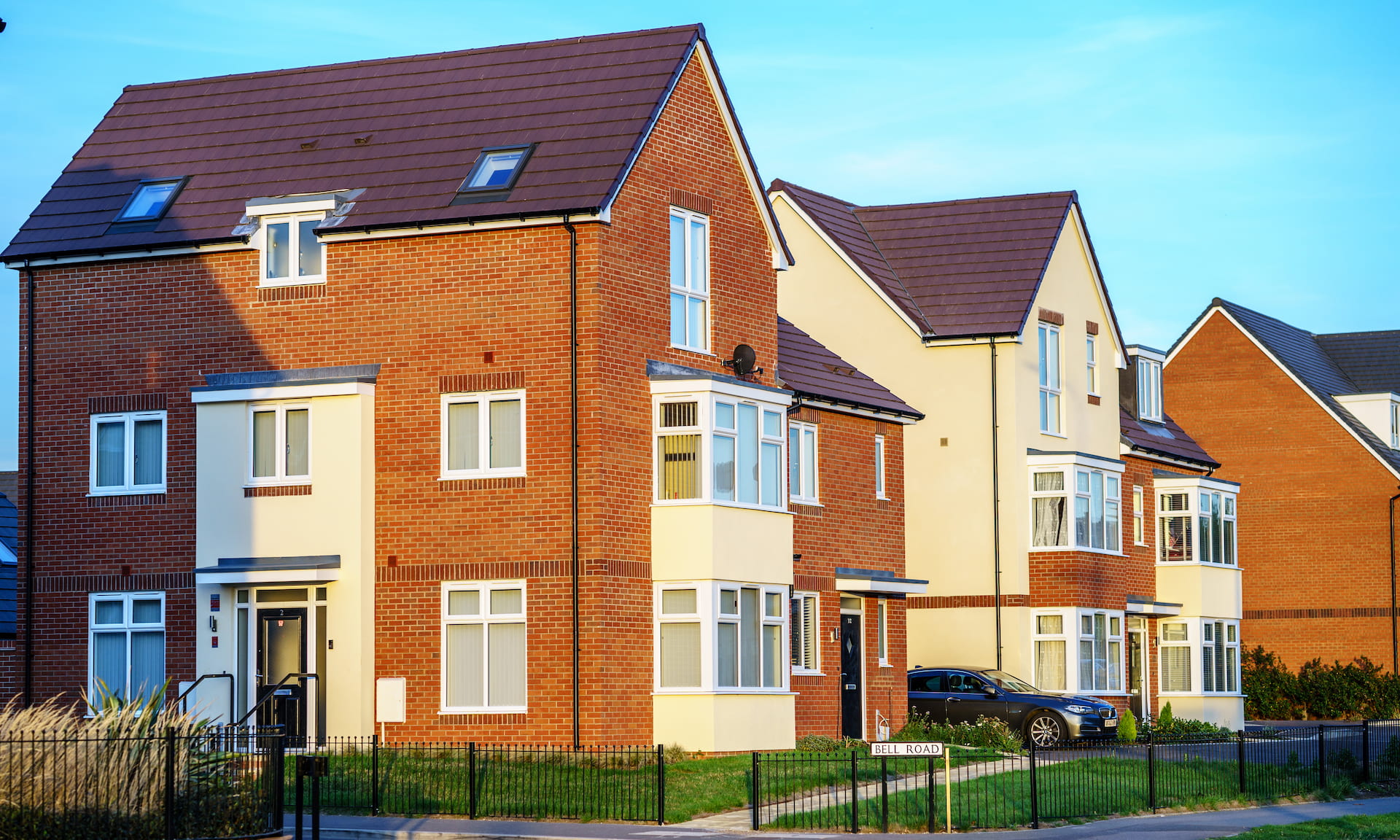
The proportion of new homes being bought off-plan has risen for the first time since 2017.
Homebuyers frustrated by a lack of properties coming on to the resale market are increasingly looking to new-build homes, according to a new report.
Here, Which? offers advice on the pros and cons of buying a property that hasn’t yet been built.
Lack of supply leads to a rise in off-plan purchases
More than a third of new homes built in England and Wales last year were bought off-plan, according to research by Hamptons International.
Buying off-plan involves reserving a new-build property before itvhas been built. Buyers will usually visit a show home or sales suite and reserve a home based on marketing materials and floor plans. You’ll usually need to pay a reservation fee of a few thousand pounds to secure the home.
The percentage of new homes sold off-plan has risen from 35% in 2020 to 37% in 2021. Hamptons says the growing interest in buying off-plan is due to supply issues in the resale market, which have led to house prices soaring.
The chart below shows how the percentage of new homes bought off-plan has changed since 2010.
Flats fall in popularity
Historically, flats have been the most common property type for off-plan purchasers, but there are signs that this is changing.
Hamptons says advanced purchases of detached, semi-detached and terraced homes all increased in 2021. The percentage of flats sold off-plan fell amid the continuing building safety crisis and reforms to the leasehold system.
The chart below shows the percentage of different types of new homes that were secured off-plan in 2021.
Who buys off-plan homes?
First-time buyers and buy-to-let investors tend to be the groups most likely to buy homes off-plan.
Off-plan sales are common at developments targeting first-time buyers due to the government’s Help to Buy scheme, which is only available on new-build properties. The scheme is now beginning to wind down, but the government’s new initiative – First Homes – will also only be available on new builds.
Buy-to-let investors, meanwhile, are most likely to buy multiple units at a new-build development and have a greater ability to wait for properties to be built.
Pros and cons of buying off-plan
Reserving a home in advance can sometimes be the only way of securing a property at a popular development, but that doesn’t mean it’s always the right thing to do.
There can be several benefits to buying off-plan. First of all, you might be able to get a small discount on the sale price, or an incentive such as having stamp duty paid for you. In addition, you’ll have a good chance of securing a better plot, and you might get to choose some fixtures and fittings.
On the other hand, off-plan purchases can be plagued by delays. You’ll need to have a clear commitment as to when the property will be finished, so you can ensure your mortgage offer will be valid for long enough.
Another word of caution – if you’re one of the first people moving into the development, you might find you’re living in a building site while the other properties are being completed.
‘The communication from my developer has been very disappointing’
Which? reader Martin Davies* bought a flat off-plan in Buckinghamshire in 2021.
He told us: ‘I was one of the first people to view the development, and two or three units quickly struck me as the best by far for my budget. I went away and thought it over, but knew I’d best act quickly to get the one I really wanted’.
Martin put down a deposit of £1,000 to reserve his flat, and found that the conveyancing process went relatively smoothly, despite the busy property market. After moving in, however, he faced some unexpected issues with the developer.
He explained: ‘The communication from the developer has been very disappointing. I’m still awaiting some snagging to be done a year after moving in. The developer has a high turnover of staff and can be very brusque when you raise an issue. I was suddenly told snags must be reported within 28 days of moving in, but things like cracks in the plaster don’t conveniently happen within 28 days.’
Martin believes buyers should take their time and do plenty of research before buying off-plan. He says: ‘You might think a property is perfect, but give it plenty of consideration off-site. Check and double-check the developer’s reputation for build quality and customer service. Finding out about sub-standard features and services months after you’ve moved in really does offset some of the benefits of buying early’.
The new-build premium
If you’re thinking of buying a new-build home, it’ll probably cost you more than an equivalent existing property.
To some degree, this is understandable. New-builds are ‘box fresh’, having been built to the latest building and energy standards, and should be much cheaper to run than an older property.
This comes at a cost. Land Registry data shows new-build prices averaged £367,000 in November 2021, compared to £265,000 for existing properties. More up-to-date figures from the What House? New Homes Index shows an average new-build asking price of £334,000 in February.
If you are considering buying a new-build, especially at a time when house prices are rising, make sure you carefully consider the pros and cons before taking the leap.
*Name has been changed



